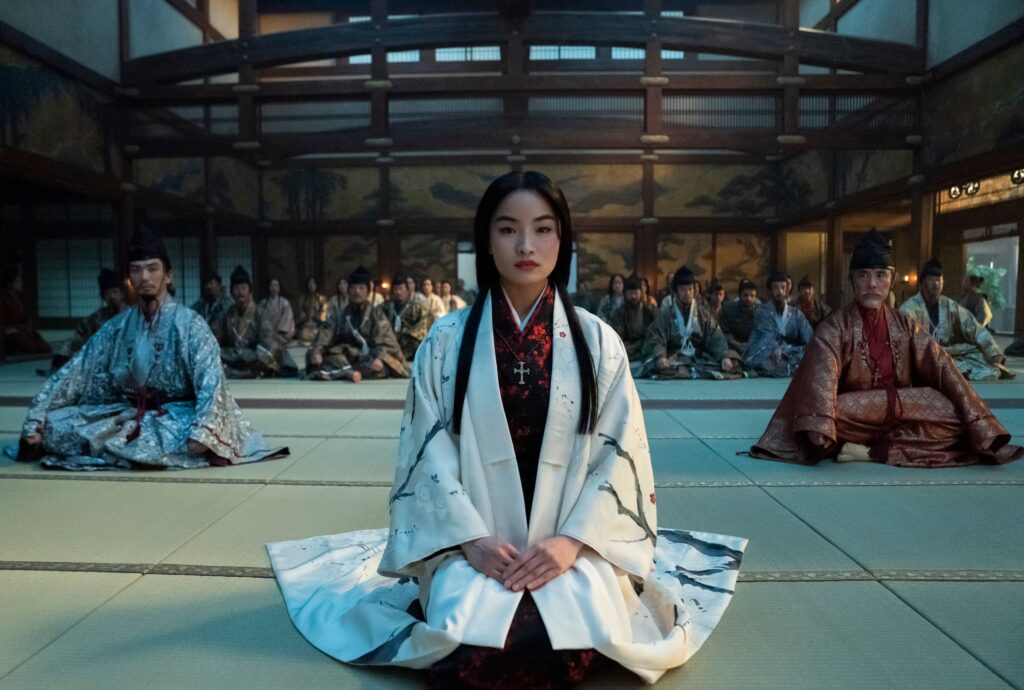‘Shogun’ on FX is an extraordinary high-stakes TV event that captivates visitors with its grand historic narration and intricate political plans. Many shows have intended to replicate the success of ‘Video game of Thrones,’ often focusing on dream components to lure audiences. Nevertheless, ‘Video Game of Thrones’ grew not simply on dragons and ice zombies yet on its extreme political handling. While HBO spared no expenditure in bringing the globe of Westeros to life, the heart of the program stocked its engaging dialogues and character communications. ‘Shogun’ emerges as a solid contender in today’s fragmented TV landscape, offering a rich and immersive experience steeped in history and intrigue.

Based on James Clavell’s bestselling novel of the same name, which was previously adapted into a miniseries for NBC in 1980, Shogun is set in 17th-century Japan with the nation on the precipice of a civil war. It’s been a year since the taiko, the supreme leader of a unified Japan, died. The taiko’s heir is too young to lay claim to the throne, so a five-person Council of Regents has been established in his place. While each member of the council has their own agenda– two of the men have converted to Catholicism after the Portuguese established trade with the island nation– the most enigmatic of the bunch is Lord Yoshii Toranaga (Hiroyuki Sanada), a renowned warrior who hails from a dynastic family. The other members of the council have united against Toranaga, fearing he plans to anoint himself shogun and rule Japan in a de facto military dictatorship.
Led by the scheming Lord Ishido Kazunari (Takehiro Hira), the council is readying a vote to impeach Toranaga, which would double as a death sentence. But when a battered Dutch vessel arrives on the shores of Japan, piloted by the English sailor John Blackthorne (Cosmo Jarvis), Toranaga sees an opportunity. As a Protestant, Blackthorne is an enemy of the Portuguese-allied members of the council and could be a useful bargaining chip against them. But more importantly, Blackthorne has knowledge of Western warfare, and his “barbarian” ship is loaded with cannons and muskets: weapons that could turn the tide in Toranaga’s favor if war were to break out.
It’s a dense setup, and one of the thrills of Shogun is trying to keep track of the shifting allegiances between the major political players. The situation is especially fraught because of the strict set of rituals and decorums unique to Japanese culture. In the premiere, for instance, one of Toranaga’s samurai speaks out of turn when Ishido insults his lord– as punishment, the samurai is ordered to commit seppuku and end his bloodline. In moments like this, Blackthorne is an effective audience proxy, reacting in disbelief as the people around him seem to treat life and death so callously. (Blackthorne’s culture shock is also where Shogun embraces some levity: He can’t fathom why people in this country choose to bathe more than once a week. Blackthorne, I know it smells crazy in your kimono.)
Blackthorne, who does not understand Japanese, is aided by Toda Mariko, a noblewoman with knowledge of Portuguese, to act as his interpreter at the request of Toranaga. Despite communicating in English, Mariko and Blackthorne form a bond as they navigate their roles as pawns in a high-stakes political game in Japan. Shogun stands out among historical epics for its understated approach, showcasing moments of extreme violence alongside the characters’ strategic maneuvers to prevent chaos, particularly exemplified by Toranaga’s calculated actions both in war and politics. Toranaga’s strategy of letting his opponents make the first move, learned from his days as a warrior, is a central theme in the series, emphasizing the importance of patience and strategic planning.
Shogun’s subtlety may surprise viewers given its lavish production, with characters embodying a Japanese proverb about hidden hearts. Toranaga’s secretive nature adds intrigue to the plot, making it initially challenging to emotionally connect with the series. However, once viewers grasp the nuances, they can appreciate the unspoken depths of the characters and the intricate dynamics between them. Blackthorne stands out as a character who defies stereotypes, as he is transformed by Japan rather than acting as a traditional outsider savior.
Shogun’s presence is greatly valued, as it represents a prominent event series that is becoming less common in today’s entertainment landscape. With networks and streaming platforms trimming down their budgets, it’s noteworthy that FX, a network known for its high-quality programming, is taking on such an ambitious project. FX has a reputation for developing miniseries that evolve into successful anthology series, such as Fargo, American Crime Story, and Feud. Considering that Shogun is based on a self-contained story but could potentially expand into a larger narrative inspired by James Clavell’s extensive Asian Saga, it raises the question of whether the series could follow a similar trajectory. As historical epics gain popularity, there could be an opportunity to explore the rich storytelling potential of the Clavellverse.
Shogun is a masterpiece that stands on its own merit, showcasing exceptional craftsmanship in every frame. The series’ commitment to offering a Japanese perspective is evident in its predominantly Japanese dialogue, which should not deter viewers who are willing to appreciate the story’s cultural authenticity. Shogun is not just a worthy replacement for Game of Thrones; it’s the year’s best new series, delivering a thought-provoking and emotionally resonant experience in both grand and subtle moments.

